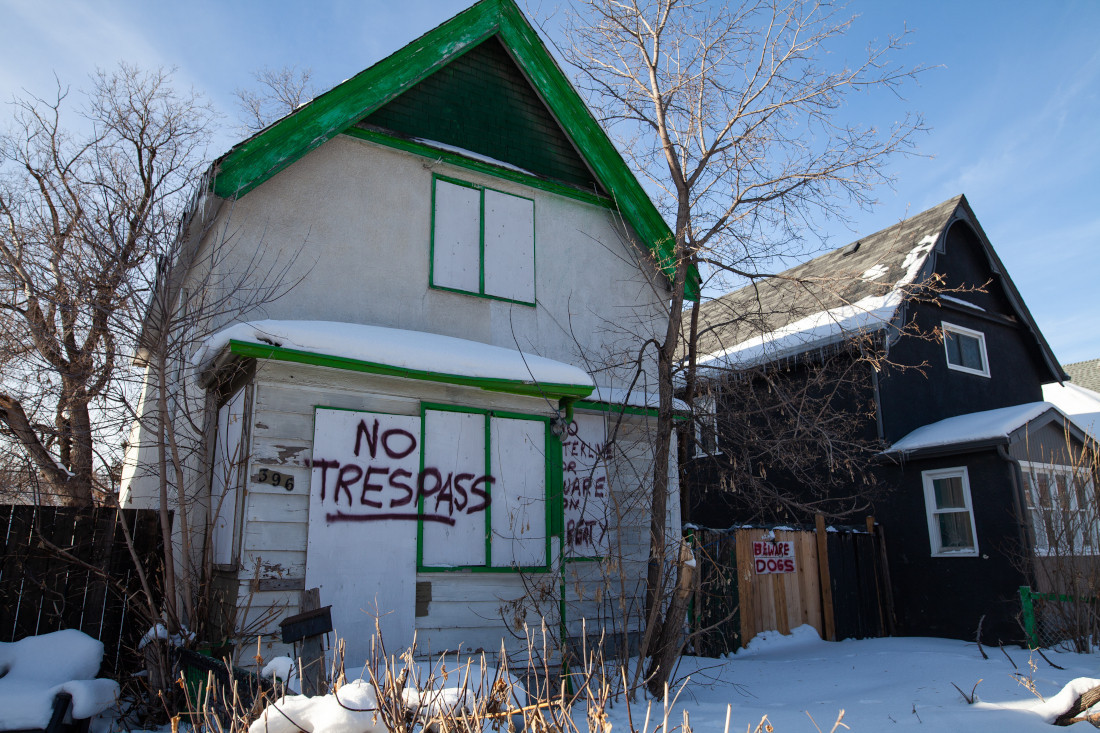Vacant-building property owners may pay cost of fire responses
New bylaw addresses administrative costs, vacancy rates
The owners of vacant buildings in Winnipeg may now pay in the event of a fire. City council will vote to charge building owners thousands of dollars if firefighters are sent to their properties.
This new bylaw amendment could see property owners charged upwards of $12,000 whenever emergency crews respond to a fire. This total includes firefighters’ wages, as well as the operating costs for certain equipment.
Coun. Sherri Rollins, chair of the Standing Policy Committee on Property and Development, says the City is “trying a toughas-nails deterrence, because the problem of vacancy is growing.”
The number of monitored vacant buildings has decreased, with 683 in 2021 and 666 in 2022. However the issue of fires has increased.
“This is not only a blight in our communities,” Rollins says. “It’s also a tremendous administrative burden for the City.”
In 2021, vacant-building fires cost the City $502,845. The City recorded 74 vacant-building fires between April 5 and Dec. 29, 2022, which is nearly double the previous year’s total.
This proposed policy change adds to existing bylaws. The Vacant Buildings By-law was passed more than a decade ago to reduce fire risk, safety hazards and illegal activities, while encouraging owners to renew and secure their properties.
Under this bylaw, residential building owners are charged $2,600 for a one-year permit to board up buildings. It also introduced more frequent building inspections.
The City added an empty-building fee in 2020, which charges property owners 1 per cent of a building’s value if it remains vacant. This fee is applied when five or more inspections take place for a given building. It can be partially refunded if the building is properly secured and occupied.
To encourage property development, Rollins says the money from fines and fees goes to the City’s Housing Rehabilitation Investment Reserve, which provides grants for residential renovations and maintenance.
Despite the pending amendment to existing policy, Shauna MacKinnon, associate professor and chair for the Department of Urban and Inner-City Studies at the University of Winnipeg, says more still needs to be done.
“This isn’t a new problem for us,” she says. “The issue of vacant buildings is growing in many urban centres, and the challenge is how do you regulate it.”
The City is currently monitoring 666 vacant buildings, only 63 of which have active boarded-building permits. The City has five designated bylaw officers for vacant-building inspections.
“It’s good to have this new addition to the bylaw, but the City needs to scale up its work, enforcing the entire vacant-buildings bylaw,” MacKinnon says. “We wouldn’t be having the problem of fires if we were properly enforcing the bylaws.”
She says the City needs to be more proactive in acquiring vacant and non-compliant buildings. In 2007, for example, the City acquired 20 vacant and derelict buildings.
Under the current bylaw, if a vacant-building owner is non-compliant and convicted, they will be fined $100,000 and the City will take possession of the vacant building under the “Taking Title Without Compensation” process. However, it is unclear how long the process is.
“We wouldn’t put up with this if it was in the south end of the city. We are putting up with it because it is in the North End and in the core area, where many people live in poverty and where we can close our eyes more easily,” MacKinnon says.
City council will consider the amendment on Thursday, Jan. 26. The motion was previously approved by the property and development and executive policy committees.
Published in Volume 77, Number 16 of The Uniter (January 26, 2023)








